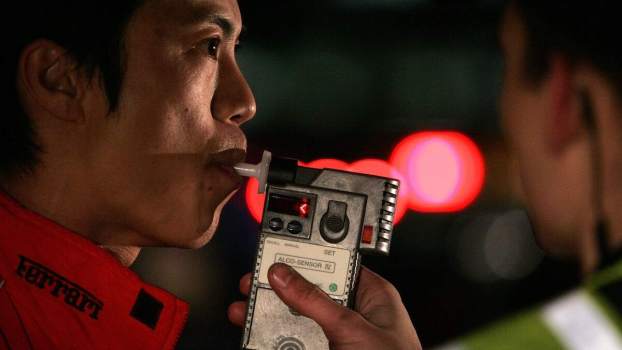
Why Do Sovereign Citizens Call Driving ‘Traveling’?
“Sovereign citizenship” is an ideology popular among certain political eccentrics in the United States. Sovereign citizens have certain dubious beliefs regarding American history and jurisprudence, many of which purport to render them immune to specific American laws. Sovereign citizens range from harmless political oddities to armed and organized violent extremists. The Southern Poverty Law Center lists some SovCit organizations as hate groups, particularly given an ongoing alignment with the more violent factions of the political cult QAnon.
So, what on Earth does all that have to do with weird claims at traffic stops?
What do sovereign citizens believe?
There are two things to understand about the SovCit movement.
First, it really is a movement. There’s no central organization, just a political trend built on an unusual interpretation of the Constitution. Without getting too deep into the legal weeds, the Fourteenth Amendment limits the power of state governments, guaranteeing certain rights to American citizens even when state laws contradict them.
Sovereign citizens consider the Fourteenth Amendment an illegal, invalid violation of states’ rights. According to them, the Fourteenth created two sets of citizens: de jure citizens, governed by the Fourteenth Amendment and the rest of federal law, and sovereign citizens, who don’t accept the Fourteenth, refuse all federal benefits, and retain all their pre-Fourteenth legal rights. According to the SPLC, self-identified sovereign citizens avoid federally funded resources like the plague: they don’t take benefits, often refuse to pay income tax, and reject the authority of most government officials.
That’s the first thing to know.
The second thing to know is that, legally speaking, sovereign citizens are wrong about everything. The political and moral beliefs of the SovCit movement are beyond the scope of this article, but in practice, the American justice system treats sovereign citizens as a joke. As Penn State Law Review reports, anyone offering sovereign citizen arguments in a legal matter is virtually guaranteed to lose.
What is ‘traveling,’ according to sovereign citizens?
This is where “traveling” comes in. Since the sovereign citizen movement considers the current federal government illegitimate, followers are firmly opposed to official documentation, including birth certificates, Social Security, and, yes, driver’s licenses.
Therefore, on getting pulled over, sovereign citizens have two arguments, both predicated on the idea that they are “traveling” rather than driving.
First, since sovereign citizens consider themselves not subject to American law, they believe driving on federal highways is effectively visiting a foreign country. As foreign nationals, many SovCits say, local documentation – said “documentation” generally being paperwork they made themselves – should be sufficient for a traffic stop.
Second, sovereign citizens assert that the right to free movement, well established in American law, entitles them to “travel” unlicensed. This is as close as the group gets to being right about something: America does guarantee the free movement of its citizens. What it does not guarantee is the unrestricted right to operate a complex, potentially dangerous machine in a public place. For that, whether it’s a car, a speedboat, or a helicopter, you’ll need a license.
Both these arguments generally go exactly as well as you’d expect. A lot of sovereign citizens get arrested at traffic stops.
Other SovCit driving beliefs
To paraphrase Police1, in certain areas, sovereign citizens have become the bane of traffic cops trying to do their jobs. Even leaving aside the whole “this car is unregistered, and the license appears to be a Post-It Note” issue, savvier sovereign citizens, aware of their tenuous legal status, try to confuse police officers as a matter of political strategy.
Sovereign citizens’ driving beliefs certainly lend themselves to that kind of confusion. Per Jalopnik, some favorite arguments include:
- That they are not subject to American taxes, including “license plate tax.” Nope. Legally, license plate charges are fees, not taxes: they just recoup the cost of making the plates.
- That the vehicle they’re driving is legally not a “motor vehicle” meant for commercial use but an “automobile” for pleasure driving, and only the former requires a license. However, licensing isn’t a matter of commercial vs. private use; it’s to prove the driver can safely operate the vehicle.
- That absent an accident or imminent risk, traffic infractions are not crimes, as there is no “injured party.” Absolutely not. American law recognizes a variety of crimes with no injured party.
In short, most sovereign citizen beliefs about American traffic law, including “traveling,” are based on a wholly fallacious understanding of the American legal system. Using them will not resolve a traffic dispute and may exacerbate any subsequent legal problems.





